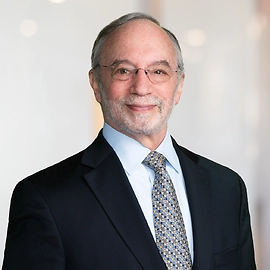RECENT PRESS COVERAGE
Rock Center with Brian Williams recently featured a story about hospitals that were "overwhelmed by ‘permanent residents.’" The focus of the piece was individuals whose need for acute care in a hospital had long since been addressed, but who have no insurance or other way to pay for the long-term care they do need, in a nursing home or rehabilitation facility, or in their own home. Without a safe place to which discharge is available for these patients, hospitals must continue to provide for their care.
One of the individuals profiled by the piece, and many of those who unnecessarily languish in hospital beds, are undocumented individuals without health insurance or access to government health care programs, including Medicaid. However, in various states around the country, including New York, there is a solution to the problem – a status called PRUCOL, short for permanently residing in the United States under color of law. (PRUCOL is not an immigration status granted by the Department of Homeland Security, it is a public benefits eligibility category based upon a foreign national’s immigration status. Under what circumstances an individual will be considered to be PRUCOL, and eligible for Medicaid, is determined separately by each state program.)
PRWORA
Many people think that one must be a lawful permanent resident of the United States (i.e., have a "green card") or be a refugee to be eligible for Medicaid. This belief is based upon the Personal Responsibility and Work Opportunity Reconciliation Act of 1996 ("PRWORA")(commonly called "Welfare Reform")(Pub. L. 104-193, codified in various sections of Titles 8 and 42 of the United States Code.)Generally speaking, aliens who are lawfully admitted for permanent residence, asylees, refugees, paroled into the United States for at least one year, having their deportation withheld, granted conditional entry, Cuban or Haitian entrants, or victims of battering or extreme cruelty by a family member are "qualified aliens" (see 8 U.S.C. §1641[b] – [c]) and are generally eligible for federal benefit programs, including Medicaid, if lawfully residing in the United States before August 22, 1996. Qualified aliens entering the U.S. on or after August 22, 1996 are eligible for federal Medicaid after five years. While other, "non-qualified" aliens are ineligible for federal Medicaid, states may pass laws subsequent to August 22, 1996 providing for their eligibility for state Medicaid. Notwithstanding the above, all aliens may receive state and federally funded emergency medical treatment. (see 8 U.S.C. §§ 1611 – 1613, 1621). While New York, in response to PRWORA, actually passed legislation making aliens ineligible for Medicaid, that law was struck down as being violative of the New York State Constitution in Aliessa v. Novello, 96 N.Y.2d 418 (2001).
PRUCOL
New York State Department of Health Informational Letters 07 OHIP/INF 2, March 15, 2007 (PDF); 08 OHIP/INF 4, August 4, 2008 (PDF); and Administrative Directive 04 OMM/ADM-7, October 26, 2004 (PDF) spell out the criteria for Medicaid eligibility for PRUCOL aliens, defined as aliens who are living in the United States with the knowledge and permission, or acquiescence, of the federal government, and whose departure the agency does not contemplate enforcing. This condition is considered satisfied if: (1) it is the agency’s policy or practice not to enforce the departure of aliens in a particular category; or (2) it appears that the federal immigration agency is permitting the alien to reside in the United States indefinitely. In addition to the many statuses listed in these two documents that have been granted by the United States Citizenship and Immigration Services (USCIS), applications pending for a reasonable time (generally six months) with USCIS or the Executive Office for Immigration Review for various statuses will qualify an alien for PRUCOL status, and thus eligibility for Medicaid, if other eligibility criteria are met, including applicants for:
- Adjustment of status;
- Asylum;
- Suspension of deportation or cancellation of removal;
- Temporary protected status;
- Any other status that permits the applicant to work in the United States.
- Suspension of deportation;
- Cancellation of removal; or
- Deferred action.
California also has broad PRUCOL eligibility for Medicaid. Hawaii, Maine, Massachusetts, Pennsylvania, and Virginia has more limited eligibility, while New Jersey grandfathers eligibles in nursing homes as of June 30, 1996, and New Mexico grandfathers arrivals prior to August 22. 1996 (effective date of PRWORA). Various states also have other specialized categories of Medicaid eligibility.
CONCLUSION
In sum, undocumented individuals who remain in a hospital for financial reasons after the need for acute care has been addressed generally have good arguments for eligibility for an immigration status, the pendency of which will provide the basis for a PRUCOL determination and Medicaid eligibility. Often, discharge arrangements can be made with long term care providers during consideration of the immigration application, while the situation ripens into PRUCOL status. Like many other current initiatives, this leads to higher quality care, at less cost.
